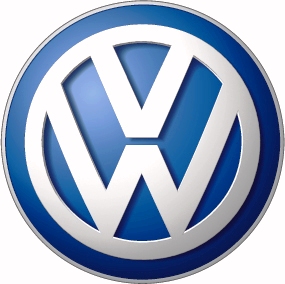(The caption for the second photo has been corrected.)
So far, more than 300 lawsuits have been filed against Volkswagen in the wake of revelations it cheated on diesel emissions tests, and a former U.S. Bankruptcy Judge has been given the difficult challenge of trying to consolidate the various legal actions and usher in a settlement.
A panel of federal judges will meet in early December to take what could be the next step, deciding on a single venue to handle the expected mega-class action. VW faces the possibility of paying out billions of dollars to owners of the 482,000 diesel-powered vehicles it acknowledged were outfitted with software designed to make the cars appear to meet emissions standards while undergoing certification tests.
That’s on top of the hefty fines – possibly as much as $18 billion – the German maker might have to pay the Environmental Protection Agency for violating the Clean Air Act. Separately, VW also faces the prospect of fines and possible criminal charges as the U.S. Justice Department looks into the cheating scandal.
(VW loses $1.83 bil during Q3. Click Here for more.)
Chief U.S. District Judge Gerald Rosen has tapped retired U.S. Bankruptcy Judge Steven Rhodes to oversee the VW settlement process. Rhodes is not stranger when it comes to controversy. He also oversaw the difficult challenge of steering the City of Detroit through what was the largest municipal bankruptcy case in U.S. history.
In his new assignment, the former judge will have to find common ground among an estimated 300 or more lawsuits filed on behalf of VW diesel owners. Specific claims vary. In some, consumers allege they were fraudulently sold vehicles that have not lived up to expectations. VW claimed products like the Jetta TDI delivered great mileage and strong performance, even while generating low emissions.
In some cases, owners are demanding cash, but some of the suits also seek to force VW to buy back those vehicles.
For its part, VW has repeatedly admitted it erred, most recently on Wednesday when Herbert Diess, the new head of Volkswagen’s passenger car operations, told reporters in Germany, “On behalf of my company, I would like to apologize,” adding that the subterfuge will never happen again.
(To see how the diesel scandal is hammering prices for new and used VWs, Click Here.)
The German company plans to begin fixing the 11 million flawed diesels sold worldwide early next year, a process that could take until the end of 2016 to complete. It has yet to get approval for a fix for those 482,000 U.S. vehicles from the EPA, however.
VW has meanwhile set aside $7.3 billion to handle the cost of the scandal, though most analysts anticipate the ultimate cost will be much higher. A new report from Credit Suisse projects the eventual cost will come in closer to $87 billion.
(Could VW diesel scam really cost it $87 bil? Click Here to find out.)
As with previous scandals involving Toyota and General Motors – both of those related to safety lapses – the courts want to consolidate the VW suits, if possible, to avoid having to hear the same arguments over and over again.
A panel of judges will meet in New Orleans on December 3rd to decide how to proceed. They are expected to pick a single venue for an eventual trial, and based on where the primary lawsuits have so far been filed, courts in California, Michigan, New York, New Jersey and Virginia are in the running.
The civil trial could provide analysts and investors a better sense of how things will shake out for VW, but even a pre-trial settlement wouldn’t ensure the worst was over for the maker. It not only faces the EPA and Justice Department investigations over the diesel emissions cheating, but among other things, VW has agreed to have a third-party audit of the crash data it provides U.S. safety regulators.
A recent study suggested VW might have significantly under-reported the number of deaths and injuries that have occurred in its vehicles in recent years. If that is verified by a third-party audit, the maker could face new fines and charges.



The story says the retired Bankruptcy Judge who will oversee the VW matter and previously dealt with the Detroit bankruptcy is Steven Rhodes, but the caption to the photo says he is Gerald Rosen (who the story identifies as the US District Judge who chose Rhodes for the VW assignment).
We will correct, Evan. And we’ll blame jetlag. Judge Rosen tapped retired judge Rhodes for the job.
Paul E.